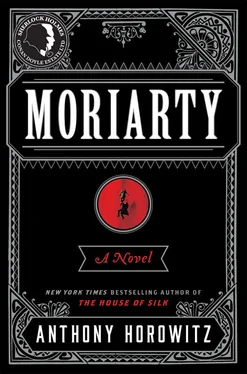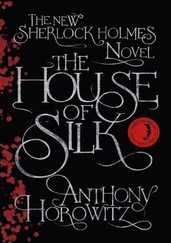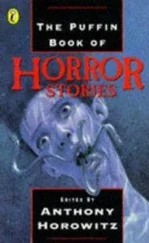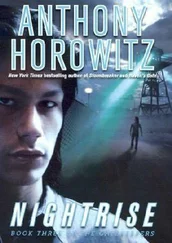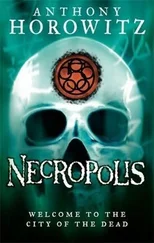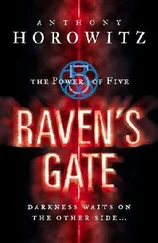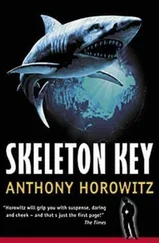Moriarty
Anthony Horowitz
For my friend, Matthew Marsh
And in memory of Henry Marsh, 1982–2012
From The Times of London
24th April 1891
HIGHGATE BODY FOUND
Police have no explanation for a peculiarly brutal murder that has come to light close by Merton Lane in the normally pleasant and quiet vicinity of Highgate. The deceased, a man in his twenties, had been shot in the head but of particular interest to the police was the fact that his hands had been tied prior to the killing. Inspector G. Lestrade, who is in charge of the enquiry, inclines to the belief that this dreadful act took the form of an execution and may be related to recent unrest in the streets of London. He has identified the victim as Jonathan Pilgrim, an American who had been staying at a private club in Mayfair and who may have been visiting the metropolis for reasons of business. Scotland Yard has been in contact with the American legation but so far no address has been found for the dead man and it may be some weeks before any relatives come forward. The investigation continues.
Does anyone really believe what happened at the Reichenbach Falls? A great many accounts have been written but it seems to me that all of them have left something to be desired—which is to say, the truth. Take the Journal de Genève and Reuters, for example. I read them from start to finish, not an easy task for they’re both written in that painfully dry manner of most European publications, as if they’re reporting the news because they have to, not because it’s something they want you to know. And what exactly did they tell me? That Sherlock Holmes and his foremost adversary, Professor James Moriarty, of whose existence the public were only now learning, had met and that both of them died. Well, it might as well have been an automobile accident for all the excitement those two authorities managed to put into their prose. Even the headlines were dull.
But what really puzzles me is the narrative of Dr John Watson. He describes the entire affair in Strand Magazine , starting with the knock on the door of his consulting room on the evening of April 24th 1891 and continuing with his journey to Switzerland. I yield to no one in my admiration for the chronicler of the adventures, exploits, memoirs, casebooks and so on of the great detective. As I sit at my Remington Number Two improved model typewriter (an American invention, of course) and begin this great labour, I know that I am likely to fall short of the standards of accuracy and entertainment that he maintained to the end. But I have to ask myself—how could he have got it so wrong? How could he have failed to notice inconsistencies that would have struck even the most obtuse police commissioner as glaringly obvious? Robert Pinkerton used to say that a lie was like a dead coyote. The longer you leave it, the more it smells. He’d have been the first to say that everything about the Reichenbach Falls stank.
You must forgive me if I seem a touch overemphatic but my story— this story—begins with Reichenbach and what follows will make no sense without a close examination of the facts. And who am I? So that you may know whose company you keep, let me tell you that my name is Frederick Chase, that I am a senior investigator with the Pinkerton Detective Agency in New York and that I was in Europe for the first—and quite possibly the last—time in my life. My appearance? Well, it’s never easy for any man to describe himself but I will be honest and say that I could not call myself handsome. My hair was black, my eyes an indifferent shade of brown. I was slender and though only in my forties, I was already too put-upon by the challenges life had thrown my way. I was unmarried and sometimes I worried that it showed in my wardrobe, which was perhaps a little too well worn. If there were a dozen men in the room I would be the last to speak. That was my nature.
I was at Reichenbach five days after the confrontation that the world has come to know as ‘The Final Problem’. Well, there was nothing final about it, as we now know, and I guess that just leaves us with the problem.
So. Let’s take it from the start.
Sherlock Holmes, the greatest consulting detective who ever lived, flees England in fear of his life. Dr Watson, who knows the man better than anyone and who would never hear a word said against him, is forced to admit that at this time Holmes is at less than his best, utterly worn out by the predicament in which he finds himself and which he cannot control. Can we blame him? He has been attacked no fewer than three times in the space of just one morning. He has come within an inch of being crushed by a two-horse van that rushes past him on Welbeck Street; he has almost been hit by a brick that falls or is thrown from a roof on Vere Street—and, right outside Watson’s front door, he finds himself attacked by some good fellow who’s been waiting with a bludgeon. Does he have any choice but to flee?
Well, yes. There are so many other choices available to him that I have to wonder what exactly was in Mr Holmes’s mind. Not, of course, that he’s particularly forthcoming in the stories, all of which I’ve read (without ever once guessing the solution, for what it’s worth). To begin with, what makes him think he will be safer on the Continent than he will be closer to home? London itself is a densely knit, teeming city, which he knows intimately and, as he once confided, he has many rooms (‘five small refuges’, Watson says) scattered around the place, which are known only to him.
He could disguise himself. In fact he does disguise himself. Only the next day, after Watson has arrived at Victoria Station, he notices an aged Italian priest in discussion with a porter and even goes so far as to offer him his assistance. Later, the priest enters his carriage and the two of them sit together face to face for several minutes before Watson recognises his friend. Holmes’s disguises were so brilliant that he could have spent the next three years as a Catholic priest without anyone being the wiser. He could have entered an Italian monastery. Padre Sherlock . . . that would have thrown his enemies. They might even have let him pursue some of his other interests—beekeeping, for example—on the side.
Instead, Holmes goes haring off on a journey that seems to have nothing that resembles an itinerary and he asks Watson to accompany him. Why? The most incompetent criminal will surely work out that where one goes, the other will quite probably follow. And let’s not forget that we are talking here about a criminal like no other, the master of his profession, a man who is equally feared and admired by Holmes himself. I don’t believe for a minute that he could possibly have underestimated Moriarty. Common sense tells me that he must have been playing another game.
Sherlock Holmes travels to Canterbury, Newhaven, Brussels and Strasbourg, followed every step of the way. At Strasbourg, he receives a telegram from the London police informing him that all the members of Moriarty’s gang have been captured. This is, as it turns out, quite false. One key player has slipped through the net—although I use the term ill-advisedly as the big fat fish that is Colonel Sebastian Moran has never been anywhere near it.
Colonel Moran, the finest sharpshooter in Europe, was well known to Pinkerton’s, by the way. Indeed, by the end of his career, he was known to every law enforcement agency on the planet. He had been famous once for bringing down eleven tigers in a single week in Rajasthan, a feat that astonished his fellow hunters as much as it outraged the members of the Royal Geographical Society. Holmes called him the second most dangerous man in London—all the more so in that he was motivated entirely by money. The murder of Mrs Abigail Stewart, for example, an eminently respectable widow shot through the head as she played bridge in Lauder, was committed only so that he could pay off his gambling debts at the Bagatelle Card Club. It is strange to reflect that as Holmes sat reading the telegram, Moran was less than a hundred yards away, sipping herbal tea on a hotel terrace. Well, the two of them would meet soon enough.
Читать дальше
